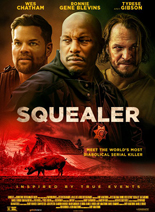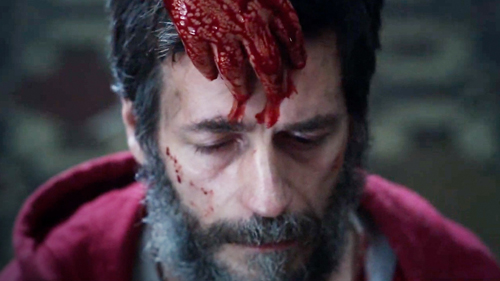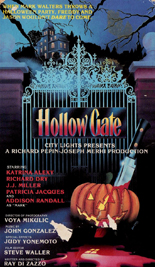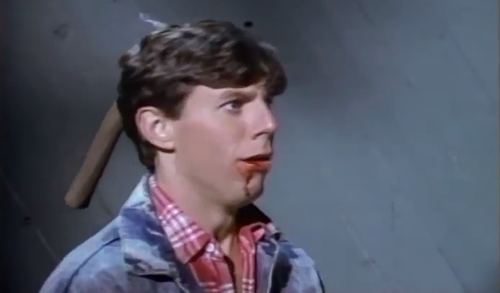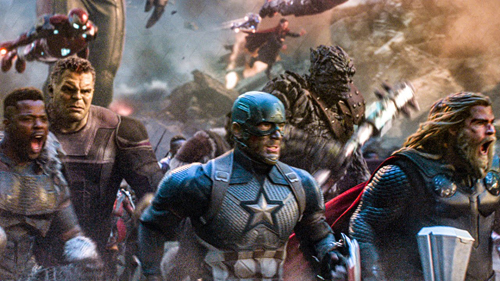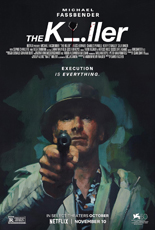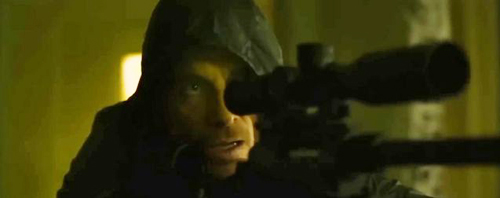
Squealer positions itself as based on real-life crimes without stating whose. If they’re not Robert Pickton’s, then actor Ronnie Gene Blevins can chalk his visual similarity up to pure coincidence and be proud of the paycheck. Then again, how many greasy pig farmers have moonlighted as serial killers?
Maybe don’t answer that.
As “Squealer” in Squealer, Blevins (2018’s Death Wish remake) plays a pig farmer and butcher who kills prostitutes. Oink, boink. He makes literal meat of the slain hookers, which causes the odd nipple ring to make its way into the ground round.
The police investigate. One of the cops is Tyrese Gibson, needing to eat between Fast X installments. The main man on the case, however, is Jack (Wes Chatham, 2014’s The Town That Dreaded Sundown remake). Because his estranged wife (Danielle Burgio, House of the Dead 2) happens to be a social worker whose heart looks out for the ladies of the night, whether Jack succeeds is a matter of when, not if.
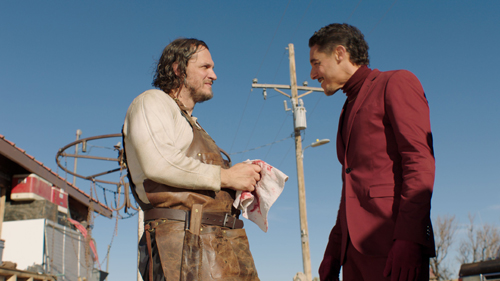
Burgio also co-produced and co-wrote the film with director Andy Armstrong (Moonshine Highway), a fellow stuntperson. Originality may not be among the pages, but they wrote her a great showcase. She shines in the part.
Meanwhile, Kate Moennig (2012’s Gone) and Theo Rossi (Emily the Criminal) steal the movie out from everyone, Batman villain-style, as Squealer’s “business associates.” She’s a tweaker; he’s a purple-suited, crossbow-wielding drug dealer. Together or individually, they bring levity every time they show up, in a movie that plays things bone-dry.
If it sounds like Squealer gets squeezed out of Squealer, that’s because he does — a victim of his own supposed story. Part procedural, part slasher, part domestic drama and part social justice advocate, the unfocused film doesn’t amount to much, outside a few amusing turns. —Rod Lott

